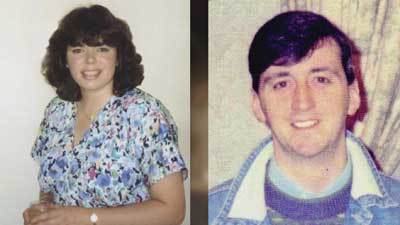It’s the subject which has been perplexing both the government and the courts in recent years: how Northern Ireland’s history should be dealt with for the benefit of both victims and wider society here.
Today the man who is legal advisor to the Northern Ireland Executive, the Attorney General John Larkin, has spoken of the legal implications of recent judgments on historical cases and the questions which would come with any truth commission, currently believed to be under consideration by the government.
Mr Larkin, who also the power to refer cases back to Coroners’ Courts here, has also explained why he has sent eleven cases, including a number of conflict-related ones, back into the system and set out why he believes the inquest system will be “front and centre” in Northern Ireland’s attempts to deal with its history.
INQUESTS AND THE LAW
A series of recent legal judgements in Europe and the Supreme Court (formerly the House of Lords) now means that Northern Ireland inquests are obliged to carry out “effective investigations” into the circumstances of controversial deaths, including those killed in so-called `shoot-to-kill’ incidents.
Last month the Supreme Court ruled that an inquest into the deaths of IRA men Martin McCaughey and Dessie Grew shot dead by police in 1990 should expand their investigation into the killings to include the planning and control of the police operation, as well as the causes of death.
The court ruled that human rights legislation meant that coroners’ courts in Northern Ireland now had an obligation to carry out ``effective investigations” into controversial killings.
It is understood the landmark ruling could impact on at least 20 other cases.
The Supreme Court judgment followed on from a European Court ruling in 2009 – Silih v Slovenia – which appeared to settle the issue of whether human rights law over state-related deaths could retrospectively apply to cases which occurred before the legislation had been enacted in a country. The court ruled Slovenia’s failure to provide an effective independent judicial system to determine responsibility for the death of a patient in receiving medical treatment in May 1993 violated Article 2 even though the death itself took place before the European Convention on Human Rights came into force in that state.
Since taking up office last year, Mr Larkin has referred the deaths of 11 people back to the coroners’ court for new inquests.
Not all of the cases Mr Larkin has ordered the coroner to reinvestigate have been linked to the Troubles.
Included in the cases referred back to the coroner were the deaths of Trevor Buchanan and Lesley Howell, who were murdered by their spouses Colin Howell and Hazel Stewart in May 1991.
The Attorney General has also asked the coroner to re-investigate the death of Terri Louise Moore, who died two weeks after giving birth in 2007.
Today Mr Larkin has told the Detail that the imperative set down by the recent judgments, will mean that inquests will now have a more significant role in how Northern Ireland deals with the past.
“It is probably true to say there is a category of case which would not have been required to be referred in the past, but which now might very well have to be,” he says.
Mr Larkin says this means coroners’ courts are now likely to have a greater role in how Northern Ireland deals with the past.
“I think they have probably been placed in that position,” he said.
“The recent decision of the Strasbourg court in Silih v Slovenia and now acknowledged as an impact on this jurisdiction by the decision of the Supreme Court in McCaughey and Quinn very recently … is probably going to put the coroners’ court front and centre of the way in which we explore our past.
“Now, probably if one steps back a bit from that, which is for others to judge, the argument could be made, that the coroners’ court is very good at looking at individual cases and finding out if the evidence exists (to) what happened, but probably not so good at drawing the broader societal conclusions and that might require other mechanisms.”
A TRUTH COMMISSION
While the Attorney General says there may be legal obstacles for a truth commission to operate alongside a coroners’ inquest, he does believe that it is possible for the two to run parallel.
“In principle there’s no reason why any kind of so called truth recovery commission couldn’t operate parallel with the existing inquest system.
“Of course the kind of questions that are thrown up by the establishment of a truth commission are enormous from a legal perspective: what standing would a body have? What powers would it have? What forms of immunity could it confer on those appearing before it?
“These are just some of the issues which might arise in that context.”
